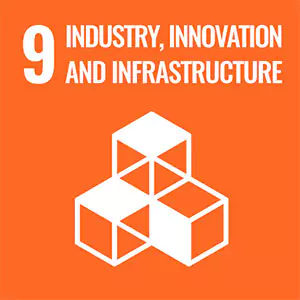MSc Communication Systems
The master's programme in Communication Systems focuses on wired and wireless network infrastructure, services and applications, and explores how the growth of the internet creates new business ideas and ventures. Students learn the fundamental design principles of networks and novel innovations such as cloud computing, internet-of-things, tactile internet, and 5G. Graduates develop secure and sustainable systems and services for the next generation.

Communication Systems at KTH
Communication networks have evolved dramatically over recent decades; so much so that catering to the data traffic produced by billions of users and trillions of digital devices nowadays demands continuous technological advancement. Innovative internet and wireless infrastructure will be needed to accommodate this challenging and unprecedented growth and performance. The master's programme in Communications Systems will prepare you for a career in this essential field in our society.
The programme adopts a comprehensive approach to various network infrastructures, their services, and applications, covering essential topics for developing next-generation communication systems. It also explores innovative concepts, current trends like cloud computing, software-defined networking, 5G and 6G mobile technology, the Internet of Things, and the Tactile Internet. Additionally, you will learn about the fundamental design principles of wired and wireless networks, which have driven significant growth and inspired new business ideas and ventures.
The first study period includes mandatory core courses that offer an in-depth knowledge of communication systems and networks. The programme then moves into specialisation tracks, comprising a broad selection of elective courses. These tracks enable students to focus on a specific subject area within the programme. Many courses are problem-based, involving self-directed and project-based work. Labs may include cellular networks planning using the wireless network tool (MENTUM) Cell Planner (the lab is expected to help students develop skills in the area of geographic information systems (GIS), site planning and coverage analysis), mobile app development and packet level analysis using ns-3 simulations, and hands-on wireless link design using software defined radio (e.g., USRP).
Course projects may include the use of machine learning in networked systems such as the deployment of large Language Models (LLM) inferencing framework on a GPU server, and examination of the resource utilization benefits when having a proper prompt scheduler in a system.
The final semester is devoted to the master's degree project. This degree project aims for students to apply the skills acquired in the programme to address real-world problems. The topic of the degree project may be suggested by a faculty member, an external agency, an industry collaborator, or the student, but should be relevant to the focus of the coursework and must be approved as a topic by the potential degree project examiner. Topics of previous final degree projects include Evaluation of security monitoring systems based on SDN, Truck connectivity platform using Software Defined Radios (SDR), Design and performance evaluation of resource allocation mechanisms in optical data center networks, Hybrid beamforming design for full-duplex mmWave relaying systems, Energy- and cost-efficient 5G networks, Performance of cellular-based positioning with machine learning, Traffic monitoring for green networking, Link adaptation in 5G networks based on reinforcement learning. Ethernet energy harvesting.
During the programme, you’ll work in a research environment with ample experimental resources and close contact with the industry, including leading system manufacturers, service developers and providers, and advanced early adopters.
The programme offers three specialisation tracks: Internetworking, Wireless Networking, and Security and Mobile Computing.
Internetworking
In this specialisation, you will acquire skills related to the fundamental design of the internet, including services and applications. You will learn how to implement network function virtualisation and software-defined networking technologies in the design and operation of telecommunication networks.
Wireless Networking
In this specialisation, you will develop skills to analyse and design different communication systems and apply electromagnetic signal propagation principles, wireless transmission techniques, protocols, standards, and technologies to build secure and efficient wireless communication systems and the Internet of Things. You will also gain hands-on knowledge of communication systems with software-defined radio.
Security and Mobile Computing
In this specialisation, you will develop skills related to product development and services for modern cloud and mobile computing platforms, and how to do this securely.
Courses in the programme
The courses in the programme cover topics such as internet infrastructure, internet security, wireless networks, internet-of-things, cloud computing, software-defined networking and network function virtualisation, 5G mobile network technology, mobile applications and services, techno-economic and business model analysis of telecom systems and services.
Courses in the master's programme in Communication Systems
Future and career
Today's technical challenges concern developing network systems to support a wide range of applications and connected devices while ensuring that the next generation of communication systems is scalable, flexible, secure, and sustainable. These systems will give users global access to numerous possibilities, such as advanced services based on sensor data produced by large amounts of constrained devices, cloud-based distributed services for computation and storage empowered by high-performance networks and powerful connected data centres. Commercialising these new ideas will create value for users, vendors, operators, and society. Consequently, entrepreneurship, product realisation and economics are inextricably linked to communication systems.
The programme provides an excellent basis for a career in research and development, as well as in network design and management. Graduates from the programme can be found in academia and the industry – on the producer side with system manufacturers and operators, on the consumer side with industry, in the public sector, and among regulators. Previous graduates have worked as research engineers, software engineers, test engineers, network engineers, app developers, web marketing managers, information security analysts, consultants, and database analysts. In addition to PhD studies at KTH, some of our graduates have gone to doctoral studies at other prominent universities in Europe and North America, including the University of Barcelona, Ilmenau University of Technology, Concordia University, University of Toronto, Technical University of Munich, Stanford University, and the University of California. There is a huge demand for network designers and administrators, especially in emerging markets and developing regions. Finally, as evidenced by Google, Skype, Spotify, and others, entrepreneurs have rich opportunities to change the world.
Sustainable development
Graduates from KTH have the knowledge and tools for moving society in a more sustainable direction, as sustainable development is an integral part of all programmes. The three key sustainable development goals addressed by the master's programme in Communication Systems are:



Energy efficiency is a key pillar of any sustainable network design, guiding the essential methods for integrating energy-harvesting sources. Therefore, properly managing how energy is drained and balanced across network components is crucial for creating self-sustainable networks. In this programme, you will explore energy-sustainable paradigms and strategies for improving the energy efficiency of existing communication systems, aiming towards (nearly) energy-self-sufficient and high-capacity networks.
The Internet of Things (IoT) and the development of machine-to-machine (M2M) communication are causing an explosion in the number of interconnected devices. These technologies provide various applications, functions and services in everyday life and a wide range of markets and industries. However, the heterogeneous nature of future networks and connected devices makes systems more complex. The programme will provide you with the theoretical foundation and the practical skills needed to design modern and sustainable communication systems.
Faculty and research
The programme in Communication Systems is given by the School of Electrical Engineering and Computer Science. The programme is coordinated via the division of Communication Systems. Research issues involve technical and economic aspects of wireless and wired communication systems and networks, fixed and mobile communication systems and networks, communication-related services, applications, and usage.
Increasingly these systems are built using internet technology. The technology focus lies on communication at the Media Access and Control (MAC) layer and above, and implementation aspects of all layers. This includes but is not limited to wireless and mobile transmission and networking IP over optical, copper, and wireless links, local and inter-domain routing, network architectures & services, network operation and service provisioning, business models, economics and policy issues.







